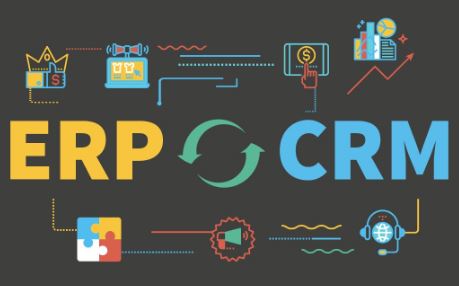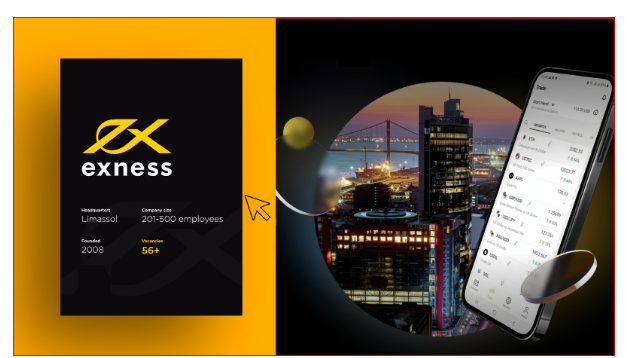Integrating CRM and ERP with Your eCommerce Web Portal: Everything You Need to Know
An eCommerce business often struggles with processing and dispatching delays and inaccurate inventory information. The primary issues are disconnected systems, poor communication, inventory, and a bad customer experience. These fragmented issues lead by:
- Manual data entry and delays in order processing.
- Difficulty analyzing customer data and optimizing strategies.
- Inconsistent service, delayed orders, and lack of personalization drive customers away.
However, this is not the case with a business that employs a CRM to facilitate interaction with clients while using ERP to manage inventory and finances. With CRM and ERP integration, your eCommerce web portal solves these challenges. It unifies front-end and back-end operations, enabling:
- Streamlined workflows and reduced errors.
- Actionable insights for smarter decisions.
- Personalized customer experiences to boost satisfaction.
This integration transforms your eCommerce platform into an efficient, customer-focused system built for modern shoppers’ needs.
What is CRM and ERP Integration?
Customer Relationship Management (CRM) & Enterprise Resource Planning (ERP) are two widely used core business coverage concepts that tackle different organizational aspects separately. While CRM aids in the development and enhancement of relationships, ERP streamlines internal operations and drives efficiency and growth together.
- CRM manages customer interactions and relationships.
- Helps monitor potential customers and marketing programs.
- Concentrates on retention of existing clients and increasing sales.
- eCommerce entails the use of ERP in business to help in the coordination of processes like stock, finance, and logistics.
- It gives insights concerning the processes being carried out and the accuracy of the same.
- Emphasis is put on improving the internal processes and cutting down costs associated with operations.
With eCommerce integration with CRM and ERP platforms, you unify these functions into one cohesive system. For example, when a customer orders, the CRM updates their profile with the purchase history, while the ERP handles inventory adjustments and financial records—all in real-time.
- Centralized Data Management
- Syncs customer, order, and inventory data across systems.
- Reduces manual errors and ensures accurate, real-time updates.
- Streamlined Order Processing
- Automatically update inventory and financial records after each order.
- Speeds up fulfillment and improves accuracy.
- Enhanced Customer Experience
- Combines customer insights (CRM) with operational efficiency (ERP). For example, businesses selling Lab Grown Diamond rings can use these insights to create tailored marketing campaigns and offer personalized recommendations based on customer preferences.
- Enables personalized marketing and faster support responses.
- Better Business Insights
- Unified reporting provides actionable insights into sales trends and inventory health.
- Supports data-driven decision-making for growth.
- Cost and Time Savings
- Eliminates redundant processes and automates workflows.
- Reduces operational overhead and improves resource utilization.
Why Do eCommerce Businesses Need CRM and ERP Integration?
A seamless ERP and CRM integration for eCommerce provides numerous benefits for online stores. Below are the key benefits of CRM-ERP integration explained in detail:
1. Improved Customer Experience
Disconnected systems make it challenging to understand and respond to customer behavior. By integrating ERP and CRM for online stores, you consolidate all customer data—such as past purchases, preferences, and feedback—into a unified view, enabling businesses to deliver personalized experiences.
Example: Imagine a scenario where a customer frequently purchases a specific product category. With integrated systems, your CRM flags this trend, allowing your team to offer personalized discounts or tailored marketing campaigns. These insights, combined with real-time updates from the ERP, enhance customer satisfaction and retention.
This integration optimizes eCommerce with CRM tools and effective front-end development, helping businesses go beyond just transactions to build deeper, more meaningful customer relationships.
2. Streamlined Operations
Manual processes, such as updating orders, managing inventory, or adjusting stock levels, are often prone to errors and inefficiencies. Unified CRM and ERP systems address these challenges by automating workflows and synchronizing operations across departments.
Example: When an order is placed, the CRM captures the customer’s details and updates their purchase history. Simultaneously, the ERP automatically adjusts the inventory, updates financial records, and triggers the order fulfillment process—all without manual intervention.
This automation not only reduces the risk of human error but also significantly improves processing speed, ensuring orders are fulfilled quickly and accurately. By providing seamless ERP integration for eCommerce, businesses can achieve higher operational efficiency, reduced costs, and better resource utilization.
3. Better Decision-Making
Centralized data from integrated CRM and ERP systems enables businesses to make more informed decisions. Having real-time access to customer trends, sales performance, and inventory levels equips decision-makers with actionable insights to build effective strategies.
Example: A unified reporting system might reveal that a specific product is frequently purchased in certain seasons. This insight allows businesses to optimize inventory management, plan targeted promotions, and adjust supply chain processes proactively.
With commerce CRM and ERP solutions, businesses benefit from data-driven decision-making that supports scalability, profitability, and long-term growth in the competitive eCommerce landscape.
Common Challenges
By understanding the challenges in integrating CRM and ERP into eCommerce, you can overcome the issues, improve your services, and make better decisions.
1: Data Migration
Migrating existing data to the new integrated system can be daunting.
Solution: Utilize automated migration tools or partner with an experienced service provider to ensure a smooth transition.
2: System Compatibility
Not all CRMs and ERPs are compatible with every eCommerce platform.
Solution: Choose tools specifically designed for integration or work with developers to customize the process.
3: Upfront Costs
Integration can seem expensive initially.
Solution: Focus on the long-term ROI through improved efficiency and revenue growth. Consider phased implementation to manage costs better.
Steps to Integrate CRM and ERP with Your eCommerce Web Portal
Here are the important factors you need to understand when integrating solutions to your eCommerce web portal:
- Analyze Business Needs: Identify key areas where integration will have the most impact, such as inventory, customer management, or reporting.
- Choose the Right Tools: Select CRM and ERP systems compatible with your eCommerce platform.
- Engage Experts: Work with experienced integration service providers to ensure a seamless process.
- Test Thoroughly: Rigorously test the system before going live to identify and fix any issues.
Conclusion
Integrating CRM and ERP with your eCommerce can turn out to be a sound choice for your online store. By selecting a professional CRM and ERP development service provider, businesses gain access to essential expertise and skills tailored to their unique needs.
In the present era characterized by cut-throat business competition, considering CRM and ERP system development for eCommerce web portals is nothing less than a mandatory thing. It improves back-end processes and front-end.
Want to advance your eCommerce business? To know more about CRM software development optimization or Microsoft Dynamics CRM services solutions, you can consult a service provider for your eCommerce business development.






